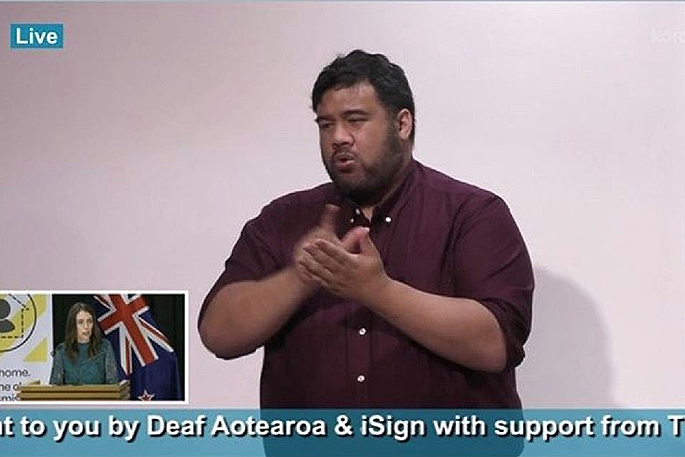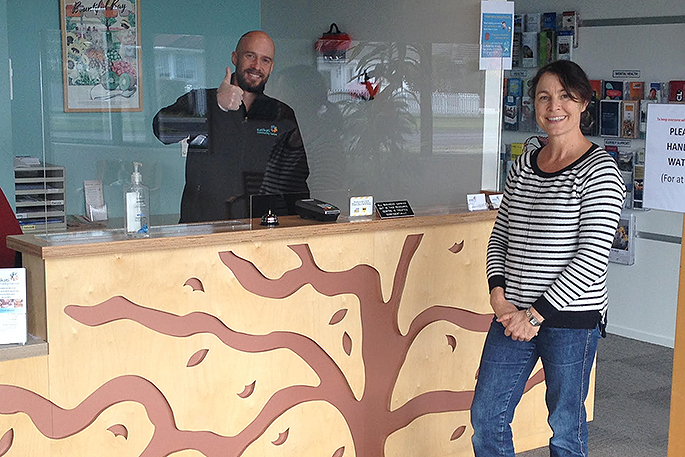From PPE equipment keeping a community centre running, and support for those with a learning disability, to the broadcasting of COVID-19 information for the deaf community; there is need in every corner of our region.
To help meet these needs, local funders TECT, Acorn Foundation, BayTrust and Tauranga City Council, have approved a further $39,276 in funding for twelve community groups in the Western Bay of Plenty. This brings the total funding approved through the Rapid Response Fund to $219,253.
The groups who received funding include Kai Aroha, Katikati Community Baptist Church, Katikati Community Centre, Street Kai, Vector Group Charitable Trust, Ngati Wakaiti/Ngati Ruahine Charitable Trust, Deaf Aotearoa, Autism NZ, People First NZ, The Boys Brigade, WBOP Neighbourhood Support, and St John Central Region.
Katikati Community Centre re-opened its doors for the first time on Thursday as the country moved to Alert Level 2.
To meet the Level 2 standards required, the Centre is following recommended hygiene measures, implementing physical distancing, a Perspex screen has been installed at the reception area, and all staff and users are provided PPE. Funding received through the Rapid Response Fund has helped cover the costs for this.
Sally Goodyear, Administration Assistant at Katikati Community Centre, says the measures will ensure their front-line staff and visitors will feel safe and protected.
'Centre staff have continued to help the Katikati community while working from home, but we are looking forward to assisting our community in person over the coming weeks.
'We will be providing our usual information and advice service, community van bookings and youth counselling, along with regular podiatrist, chiropractor, Ear Health and Justice of the Peace services. Budget Advice will be available via Zoom meetings, yoga classes will recommence, and from Monday 18th May, Katikids after-school care will be back up and running.
'We have not been able to generate any income during lockdown, so to receive this funding through the Rapid Response Fund has been such a relief—we know our community will benefit from being able to access information and support at our Centre safely.”
People First New Zealand Ngā Tāngata Tuatahi, a national Disabled Persons Organisation that empowers people with learning (intellectual) disability to speak out and be heard on things that are important to them, received $5,588 in funding.
The funds are helping cover increased hours for their Regional Coordinator and Team Leader, and remote business costs such as internet, a laptop, stationery, and printing.
People First New Zealand National Funding Manager Sandy Ryan says they have been keeping in regular contact with their 25 local members, many of whom have experienced heightened anxiety during the Alert Levels.
'Our Regional Coordinator has been checking in on members and their wellbeing throughout the lockdown levels. For some it is keeping them informed via text, phone calls, Zoom or emails, but for others, they need advice and support to get food and medication, pay bills, and get inspiration to keep active and engaged for physical and emotional health.”
'We have also been sharing and circulating information to members and the wider community translated into Easy Read format; a way of presenting information that is easier for people with learning disability to understand. The Easy Read information we are creating in collaboration with the New Zealand Government is available on the COVID-19 website and People First website.”
For Deaf Aotearoa, the $1000 they received has helped them pay for the broadcasting costs to display a full-screen NZSL interpreter for government COVID-19 updates on Kordia, either online or on Freeview channel 200.

Deaf Aotearoa Chief Executive Lachlan Keating says in a time of crisis, it is their job to ensure the Deaf community has access to the same information that other New Zealanders do.
'While the Government's press conferences have had an interpreter on the bottom right-hand side of the screen, many Deaf people find it hard to see what the interpreter is signing. Having the interpreter shown in full screen is what the Deaf community have asked for.”
For the 70 Deaf people in our region, having access to clear New Zealand Sign Language interpretation has ensured they can stay fully informed.
'We are so grateful for the funding we received, which came through quickly and allowed us to continue to secure ongoing broadcasting time.”
TECT General Manager Wayne Werder says the Rapid Response Funding process has allowed funders to respond to the needs of the community collectively, with a fast turn-around.
'Collaboration has been vital during this time of great upheaval. We are seeing it in so many of the community groups we have funded, and also recognise that as funders, it is helping serve our region better when it comes to COVID-19 related needs.
'We are pleased we can support a wide range of community groups who are working to make information more accessible, food available for all, and keeping connections strong as we move down the Alert Levels.”



0 comments
Leave a Comment
You must be logged in to make a comment.